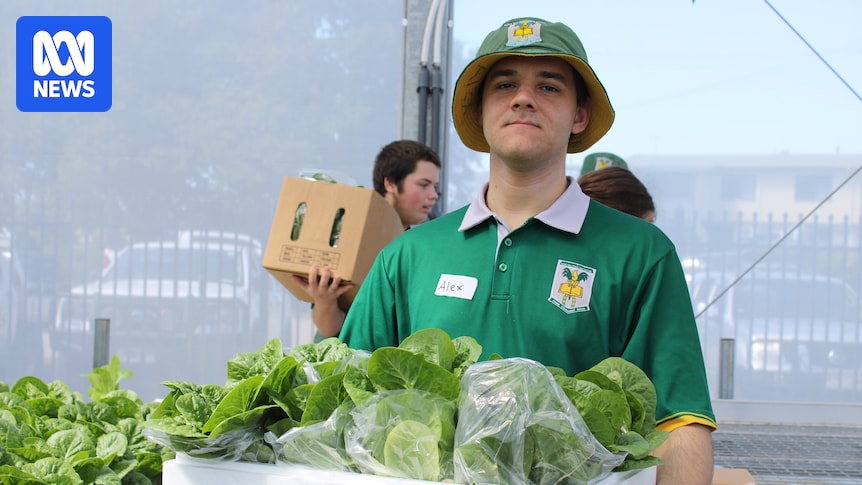
A $1.7 million horticulture facility at Home Hill State High School, located south of Townsville, is being hailed as a significant step towards addressing the skills shortage in Queensland’s agricultural sector. This initiative follows the closure of several training colleges, leaving a gap in the education of future agricultural professionals.
The greenhouse, funded by the state government, stands as the largest investment in agricultural education in the region since the Burdekin Agricultural College shut its doors in 2013. Built to industry standards, it mirrors the facilities used in real-world horticulture production and is similar to those of Queensland’s Department of Primary Industries (DPI).
Reviving Agricultural Education
Agriculture teacher Louise Nicholas emphasized the importance of this investment for the Burdekin region, where sugar cane and horticulture are vital industries. “It’s just so important to install real agricultural knowledge of where our food and fibre comes from in our young people,” Nicholas stated.
Since the closure of the privately-owned Burdekin Agricultural College six years ago, and the subsequent shutdown of state-run Queensland Agriculture Training Colleges in Emerald, Longreach, and Blackwater, the region has faced a shortage of skilled workers such as agronomists and agricultural scientists. Retired fruit and vegetable grower Des Chapman expressed hope that the new facility would spark student interest in the scientific aspects of horticulture.
“There’s just so many jobs, not just veggie picking — ag science is very much in demand,” Chapman noted.
Innovative Design for Future Challenges
The greenhouse is modeled after the DPI’s facility in Ayr and features an automated retractable roof to control humidity and temperature, addressing the challenges of horticulture production in changing climates. DPI protective cropping leader Elio Jovicich highlighted the facility’s role in maximizing production and mitigating risks associated with climate variability.
“These systems are designed to maximize production, deal with risk mitigation due to climate variability, but at the same time grow crops that are difficult to grow outside,” Jovicich explained.
Impact on Students and the Community
Year 11 and 12 students from several regional schools will have access to the facility, providing them with hands-on experience in modern agricultural practices. Heidi Wiggenhauser, a horticulturalist with the Department of Primary Industries, expressed her enthusiasm for educating the next generation of growers.
“I love the fact we’re working with the future generation of growers,” Wiggenhauser said. “Even if one person gets interested and gets a career out of it, it’s just such a good feeling.”
Year 12 student Alex Savin shared his excitement about the new infrastructure, noting its uniqueness compared to other schools he has attended. “I’ve never seen anything like this at every other school I’ve been to,” he said, adding that it has inspired him and his peers to consider careers in the agricultural industry.
“The new generations who we’re going to rely on to feed us, they’re going to be knowledgeable because they come to a school like this,” Savin remarked.
Looking Ahead
The investment in Home Hill State High School’s horticulture facility represents a broader commitment to reviving agricultural education in Queensland. As the state grapples with the challenges of climate change and a competitive global market, equipping students with the skills and knowledge to innovate in agriculture is crucial. The hope is that this initiative will not only fill the current skills gap but also inspire a new generation to pursue careers that sustain and advance the agricultural sector.
With the success of this project, other regions may look to similar investments as a model for revitalizing agricultural education and addressing workforce shortages. The future of agriculture in Queensland may very well depend on such forward-thinking educational initiatives.







